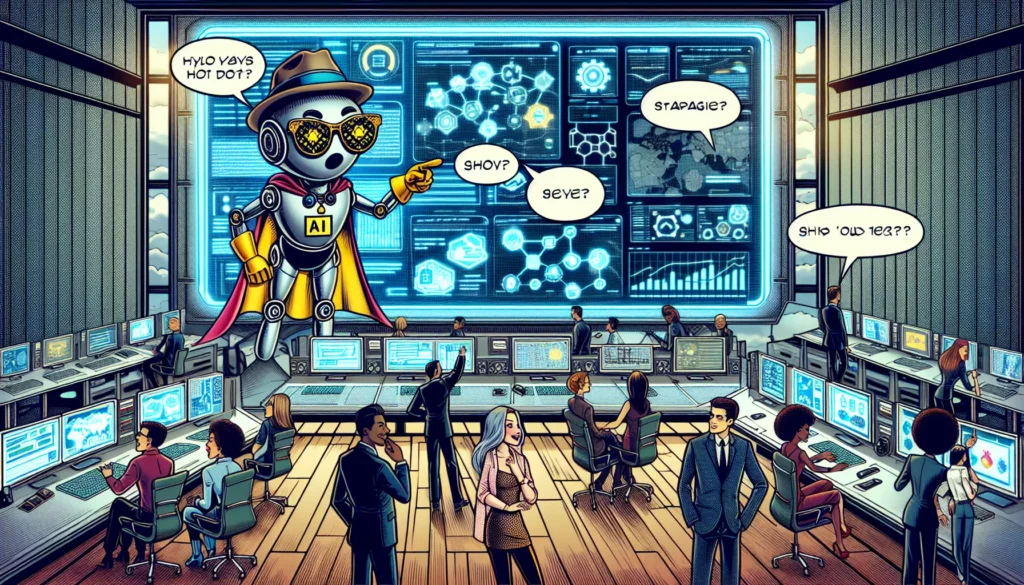Strategic Justification for Deploying Agentic AI in Security Operations Center Analysis
Security operations centers (SOCs) face increasing pressures as threats become more complex and frequent while security budgets remain stagnant. Current security leaders are tasked with minimizing risk and achieving tangible results without the option of expanding teams or increasing expenditures.
Amid these challenges, operational inefficiencies within SOCs are consuming valuable resources. Research indicates that nearly half of all security alerts are false positives, with some studies reporting that this rate could be as high as 99 percent. This scenario forces highly trained analysts to dedicate significant portions of their time addressing non-threatening activities, thereby elevating fatigue levels and increasing the likelihood of overlooking genuine threats.
The business imperative is evident: organizations must enhance the output of every analyst and every dollar by optimizing security operations to be faster, smarter, and sharply focused.
Introducing the Agentic AI SOC Analyst
The agentic AI SOC Analyst serves as a pivotal resource, empowering organizations to maximize the capabilities of their existing teams and technologies. By automating repetitive investigative tasks and reducing time spent on false positives, Agentic AI allows organizations to refocus their human expertise on critical threats and initiatives, thereby aligning security operations with essential business objectives of resilience, efficiency, and growth.
Tackling the Shortage of Skilled Analysts
A significant rationale behind the integration of agentic AI in the SOC is the acute shortage of qualified security analysts. The global cybersecurity workforce gap now stands at an estimated 4 million professionals, with many organizations struggling with a lack of experienced analysts capable of effectively triaging, investigating, and responding to contemporary threats. A 2024 survey from ISC2 indicated that 60% of enterprises worldwide reported staff shortages seriously hindering their security capabilities, while only 15% of organizations felt they had the right personnel with appropriate skills to manage cybersecurity incidents effectively.
With current teams already maxed out, they frequently face the challenge of deciding which alerts to pursue and which to neglect. The overwhelming volume of false positives further burdens even the most adept analysts, increasing vulnerability to incidents that could impact the entire business.
Rather than simply increasing headcount, organizations must prioritize optimizing the productivity of their existing skilled staff. The AI SOC Analyst resolves this need by automating standard Tier 1 tasks, filtering out irrelevant noise, and illuminating alerts that genuinely demand human insight. This strategy not only accelerates investigations and incident responses, but also aids in talent retention by alleviating burnout and facilitating more impactful, strategic assignments.
AI SOC Analysts empower security teams to mitigate risk, manage costs, and achieve greater outputs with fewer resources. By automating triage, investigation, and even remediation processes, they enhance operational efficiency, lightening the load on human analysts while ensuring that threats are addressed proactively to prevent escalation.
Cutting Through the Noise to Focus on Critical Alerts
AI SOC Analysts utilize contextual and behavioral analytics to gauge the threat level associated with alerts, effectively suppressing low-value notifications and promoting only high-risk activities. This targeted approach significantly alleviates alert fatigue, ensuring that analyst efforts are directed towards legitimate threats rather than redundant distractions. Consequently, organizations employing agentic AI SOC Analysts can achieve over a 90% reduction in false positive alerts that warrant analyst examination.
Enhancing Analyst Efficiency and Throughput
Classic investigative workflows are often laden with tedious, repetitive tasks such as log extraction, evidence compilation, and report writing. AI SOC Analysts can automate these activities, emulating the analytical thought processes of seasoned investigators. This automation results in a substantial productivity boost, enabling teams to handle more cases swiftly and redirect their focus towards strategic initiatives such as threat hunting and tuning detection mechanisms.
Continuous Learning and Adaptation
AI-driven systems exhibit dynamic adaptability. Unlike static SOAR playbooks, agentic AI evolves through continuous feedback from analysts, historical data analysis, and updated threat intelligence. As a result, investigation accuracy improves, false positive rates diminish, and SOC operations enhance efficiency over time. This progression transforms what begins as an automation tool into a valuable, compounding asset that increases effectiveness with consistent use. Additionally, AI SOC Analysts can provide insights for detection engineers to develop new rules or refine existing ones.
Key Metrics of Interest for SOC Leaders
AI SOC Analysts facilitate enhancements in vital metrics utilized to assess SOC performance and overall business impact, including:
- Mean time to investigate and mean time to respond: Automated investigations reduce response time from hours to mere minutes, thereby minimizing exposure and enabling prompt containment.
- Dwell time: More rapid triage and detection effectively compress the timeframe in which attackers can operate, compromising data or escalating threats.
- Alert closure rates: Increased resolution rates signify a more efficient SOC, leading to fewer neglected alerts.
- Analyst productivity: By allocating less time to repetitive tasks and more to proactive engagements, the value of the team escalates without expanding headcount.
Maximizing Value from Existing Resources
AI SOC Analysts significantly enhance the return on investment associated with current security technology stacks. By aggregating data from SIEM, EDR, cloud infrastructures, and identity platforms, AI ensures comprehensive investigation of every alert, effectively converting existing systems into higher-value assets.
Moreover, AI contributes to cultivating internal talent. Systematic, consistent investigations function as real-time training for junior analysts, providing exposure to advanced methodologies without necessitating lengthy experience. As a result, teams develop capabilities more rapidly and cost-effectively.
Aligning Security Operations with Business Objectives
Prophet Security aids organizations in transcending manual investigation practices and alert fatigue by providing an agentic AI SOC platform that automates triage, expediting investigations, and ensuring every alert receives appropriate scrutiny. By integrating across existing technology stacks, Prophet AI enhances analyst efficiency, diminishes incident dwell time, and fosters expedited, dependable security outcomes.
Security leaders leverage Prophet AI to extract greater value from their current personnel and tools, enhancing their overall security posture and transforming everyday SOC operations into measurable business successes.








